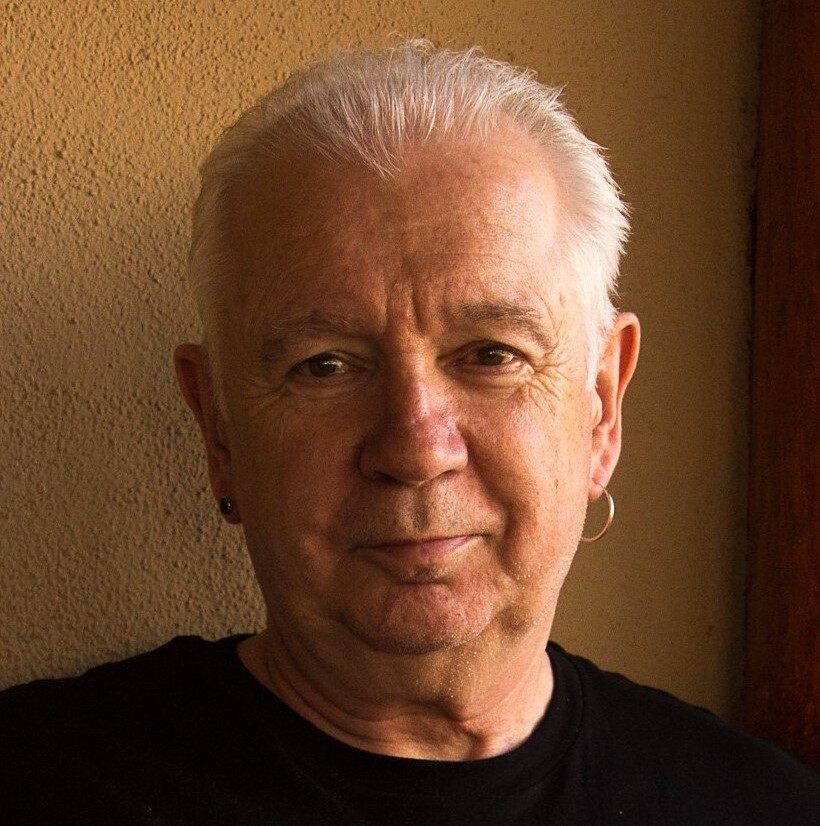Doctor of Education
EdD in Educational & Professional Practice, Social Justice Leadership
A Doctorate for Practitioners Committed to Social Action
Our doctoral program is designed to prepare professionals who use educational practice in the service of more just and inclusive schools, organizations, and communities. Through a transdisciplinary curriculum that includes shared seminars in diverse learning community, and individualized work within the Social Justice Leadership specialization, you will explore diverse meanings of social justice and engage in the creation of socially just spaces through skilled educational leadership practices.
This degree is offered in an online, low-residency format.
Program Overview
The Doctor of Education in Educational and Professional Practice is intended for professionals who use educational practices in the service of social, economic and environmental justice, in schools and beyond. The program is designed with working adults in mind. Classes are offered online, with a four-day, face-to-face residency each July on one of our campuses. A new cohort will enter the program each summer term and, if you take two courses each term, you should be able to complete the degree in three-years. You will study with an accomplished, diverse, and caring faculty who will guide you through a transdisciplinary curriculum that integrates scholarship and practice. Your culminating project will be a dissertation that establishes your place among scholar-practitioners who seek workable solutions to complex issues in schools, communities, and national and global settings.
Social Justice Leadership Specialization
Students in the Social Justice Leadership specialization inquire into the theory and practice of leadership with an emphasis on enacting justice and equity in their educational practices whether in schools, non-profit or for-profit organizations, and community-based organizations. Students will read about leadership theories and reflect on their own practices in developing a philosophy that embraces a social justice orientation and employs systems thinking and analysis, relational practices, complexity principles, and mission-based advocacy. In addition to engaging with the challenges of taking leadership theory into practice, students in the specialization will explore diverse meanings of social justice, including classical western views of justice as well as contemporary perspectives produced by marginalized voices that reconceptualize meanings of justice. Scholar-practitioners in Social Justice Leadership will theorize and engage in the creation of socially just spaces through skilled leadership that involves educational practices. Students will investigate the intersection of leadership, power, ethics, morality, and justice, emphasizing ways in which marginalization and exclusionary processes and systems may be dismantled. The specialization may be composed of seminars and individualized study. You may also choose to take courses in other Antioch programs and to transfer in credits from previous graduate work. Each student’s dissertation topic will fall within their chosen specialization.
Additional Information
Knowledge Outcomes
Upon completing the program students will be able to:
- Analyze the historical and philosophical underpinnings of educational practice, both inside and outside of traditional school settings.
- Compare current theories of adult learning and development (both cognitive and affective).
- Critique methods of educational practice that maximize learner engagement.
- Explain relationships among education, leadership, scholarship, and social activism in their fields of practice.
- Assess methods of both traditional and activist inquiry.
- Explain methods and strategies for data collection from a variety of sources.
- Assess major debates, theories, and approaches within the specialization that are pertinent to their fields of practice and their dissertation inquiry.
Skills Outcomes
Upon completing the program students will be able to:
- Inquire into and reflect critically on their educational practice:
- Identify and problematize issues stemming from practice.
- Conduct rigorous inquiry into educational practice for social change.
- Make meaning of data and reframe problems in dialogue with others.
- Identify facilitators and barriers to social change and develop appropriate intervention strategies at three levels: individual, organizational, and the larger social context.
- Assess educational needs and develop teaching/learning strategies appropriate for their students or consumers, including:
- Defining learning outcomes.
- Designing learning activities through which learning outcomes will be achieved.
- Assessing progress on these outcomes.
- Determining impact of educational practices on students or consumers
- Develop personal pedagogies of practice:
- Articulate a personal ethical moral code, a “pedagogical creed,” that guides one’s educational practice.
- Design, implement, evaluate, and revise educational practices that are consistent with their pedagogical creed and research on human learning.
- Critically evaluate and discuss published research in the field.
- Produce scholarly writing that is clear, cogent, and informed by evidence.
- Situate one’s practitioner-based scholarship within the relevant literature and debates in their fields of practice and specialization.
Dispositional Outcomes
During the program students will demonstrate their:
- Willingness to take on leadership responsibilities, both formal and informal.
- Commitment to and curiosity about using educational practices for social change.
- Commitment to continually enhance and deepen professional expertise, exemplified by:
- Critical reflection and praxis as integral to professional practice.
- Respect for the value of tacit knowledge.
- Appreciation for the power of dialogue, as demonstrated by active listening and showing respect for difference.
- Commitment to professional ethics and responsibilities, and modeling integrity in decision making.
Residencies for the EdD program are held on the first Saturday of each term.
| In-Person Residencies | Dates | Location | ||||
| July 10-13, 2025 | Westerville, OH | |||||
| July 9-12, 2026 | TBA | |||||
| Virtual Residencies | ||||||
| Residency Term | ||||||
| Spring 2025 | January 5, 2025 | Virtual | ||||
| Summer 2025 | May 4, 2025 | Virtual | ||||
| Semester | Application Deadlines | Start Dates |
|---|---|---|
| Spring | December 15 | 1/5/25 |
| Summer | April 15 | 5/4/25 |
Faculty Spotlights

Stephen D. Brookfield, PhD
Distinguished Scholar

Jonathan Eskridge, PhD
Adjunct Faculty

Richard Kahn, PhD
Core Faculty

Christopher Horsethief, PhD
Affiliate Faculty
Admissions
Admissions Criteria
Antioch's student population is richly diverse, which creates a learning climate unique to the degree. To be successful in this program, you will have a minimum of five years' professional experience, either before or after your Master's work. Regardless of your formal position, you must be able to envision yourself as an education change agent in whatever setting you work. Although you must hold a Master's degree, your degree does not need to be in Education. You should have an interest in using your EdD to advance study about educational practice in your field and should be able to identify a specialty focus for your doctoral work. You may be able to transfer in up to 12 credits of prior Master's or post-Master's graduate study in that specialization, either from Antioch or another accredited university.*
How to Apply
- Complete the online admissions Portfolio, which is comprised of the following elements:
- Online Application which provides the most recent information about your education, professional experience, references, and other personal data.
- Official transcripts from all colleges or universities where you earned a degree or certificate. Both undergraduate and graduate school transcripts must arrive at the Office of Admissions in a sealed envelope or sent via secure transcripts email service.
- Two letters of reference. These references should be from persons who are or have been in a position to evaluate your work. At least one must be an academic reference such as an instructor or program administrator who can speak to your academic promise as a doctoral student. Your recommenders can submit their letter electronically using the online application or send a signed, sealed copy directly to Admissions.
- Resumé/CV
- Personal statement. Your statement of about 1000 words should describe (a) how your education and experiences to date have prepared you to pursue for this Ed.D., (b) what you want to accomplish professionally through this degree, and (c) how the degree will help you achieve their long-term professional goals. Please also indicate which specialization you would like to pursue, understanding that this choice may change during the program.
- Work sample. This should be one piece of professional or academic work that you think is representative of your finest efforts. It might be a published essay or a chapter of a book, a curriculum, a grant proposal, a business plan, a strategic plan, a newsletter, or other types of documents. The submitted document should not exceed fifteen pages in length. If your document is longer, please excerpt the most relevant section.
- There are additional requirements for International applicants.
- Submit a non-refundable $50 application fee.
- If selected, interview with an EdD faculty member or director via phone or Skype.
The EdD does not require the GRE or any other standardized test for admissions. *Pursuant to Ohio Department of Higher Education regulations, only graduate credits in excess of 30 applied toward the master’s degree may be eligible for transfer. Please submit all materials to: Antioch University Admissions Office 900 Dayton Street Yellow Springs, Ohio 45387 –OR– [email protected] All application materials submitted become part of an applicant's file and cannot be returned.
Deadlines
| Semester | Application Deadlines | Start Dates |
|---|---|---|
| Spring | December 15 | 1/5/25 |
| Summer | April 15 | 5/4/25 |
Technology Requirements
Students in this program participate in online learning activities organized within small- and large-group learning communities. Antioch University Online is a 100% online learning environment, and therefore, in addition to having traditional learning skills, students are expected to have basic technological skills, compatible computer hardware, operating system, and internet connectivity upon entrance into the program.
Cost
Graduate Degree Tuition
| Program | Cost |
|---|---|
| EdD in Educational & Professional Practice | $1096 per semester hour |
| View the Cost of Attendance Components | |
Financial Aid
Many AU students finance their education through some form of financial aid. You may not be sure which federal, state, public, and private aid packages – such as loans, scholarships, and grants – are right for you. Our staff is here to help you, so you can focus on what’s most important: beginning your academic program at AU.

Start your Antioch Journey
Take your next step - talk to our admissions team to find the right program for you.
